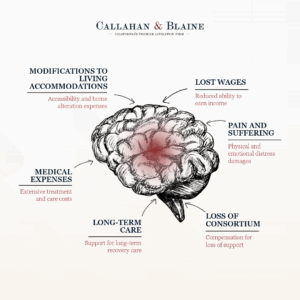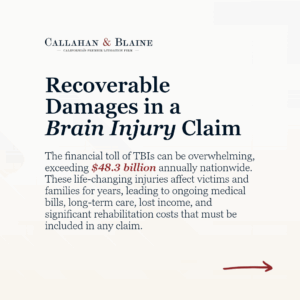Introduction to Brain Injuries
Brain injuries, including traumatic brain injuries (TBIs), represent a major public health issue in the United States. According to the Centers for Disease Control and Prevention (CDC), a traumatic brain injury is defined as an injury that affects brain function, most often caused by a bump, blow, or jolt to the head, or a penetrating injury such as a gunshot wound. These injuries can occur in a variety of situations, including motor vehicle accidents, falls, sports injuries, and violent incidents. The severity of a brain injury can range from mild traumatic brain injury (mTBI), such as a concussion, to severe and life-altering conditions. Because the effects of a brain injury may not be immediately apparent, it is crucial for brain injury victims to seek immediate medical attention after any incident involving a head injury. Consulting with experienced brain injury attorneys can help victims understand their legal rights and options for pursuing compensation, especially when the injury results from vehicle accidents, sports injuries, or other preventable causes.
Types of Brain Injuries
Brain injuries can take several forms, each with unique characteristics and implications for medical treatment and legal action. Closed head injuries occur when the brain is damaged without any break in the skull, often resulting from blunt force trauma. Penetrating head injuries, on the other hand, involve an object breaking through the skull and directly injuring brain tissue, as seen in cases of gunshot wounds or sharp object impacts. Another serious type is diffuse axonal injury, which happens when the brain moves rapidly back and forth inside the skull, stretching and damaging the brain’s nerve fibers. Brain injuries are also classified by severity—mild, moderate, or severe—based on the symptoms and the extent to which brain function is affected. Understanding the specific type and severity of a brain injury is essential for determining the most effective medical treatment and for building a strong legal case to secure compensation for the victim.
Causes of Brain Injury Accidents
Traumatic Brain Injuries (TBIs) are among the most severe and life-altering injuries that can occur as a result of accidents. Common causes of TBIs include slip and fall accidents, car accidents, pedestrian accidents, motorcycle accidents, and bicycle accidents. When a person sustains a blow to the head in an accident, the risk of TBI is significant. These injuries can lead to long-term cognitive, physical, and emotional impairments, significantly affecting a victim’s quality of life.
Spinal cord injuries often occur alongside brain injuries in serious accidents, further complicating recovery. TBIs can range in severity from mild TBI, such as a concussion, to severe TBI, which can have life-altering consequences. Understanding the causes of TBIs is crucial for personal injury claims, as it helps not only establish liability but also advocate for the necessary compensation to cover medical expenses, rehabilitation, and other damages.
SLIP-AND-FALL ACCIDENTS
Falls are the leading cause of TBIs across various age groups, particularly among the elderly and children. Slip-and-fall incidents occur in various settings, including at home, in the workplace, or in public spaces such as stores and restaurants. Factors contributing to falls include wet floors, uneven surfaces, poor lighting, and inadequate safety equipment or barriers.
MOTOR VEHICLE ACCIDENTS
Motor vehicle collisions, including car crashes, motorcycle accidents, and truck collisions, are a significant source of TBIs. The impact of the crash causes the brain to hit against the skull, leading to concussions, contusions, and other forms of brain injuries. These accidents are often a result of speeding, driving under the influence, distracted driving, and failing to follow traffic laws.
SPORTS INJURIES
High-impact and extreme sports, such as football, boxing, skateboarding, and cycling, can also lead to TBIs. Concussions are particularly common in contact sports, where repeated blows to the head are part of the game. Coaches, event management, or property owners may be liable if negligence caused a TBI during a sporting event.
WORKPLACE ACCIDENTS
Certain occupations, especially those in construction, manufacturing, and extraction industries, pose a higher risk for TBIs. Workplace accidents such as falling from heights, being struck by heavy machinery, or sustaining injuries from explosions can lead to serious brain injuries.
PREMISES LIABILITY
Property owners are legally obligated to ensure premises are safe for visitors. Unsafe conditions, such as unsecured construction sites, poorly maintained equipment, or inadequate security, can lead to accidents causing TBIs.
Establishing the cause of the injury is critical in determining liability and securing compensation for victims. The legal team at Callahan & Blaine will investigate the accident, gather evidence, and advocate for your legal rights to ensure you recover the compensation needed for your recovery and rehabilitation.
Effects of Brain Injuries on Victims
The consequences of brain injuries can be profound and far-reaching, impacting nearly every aspect of a victim’s life. Brain injury victims may experience a range of physical symptoms, such as severe headaches, vomiting, fatigue, and difficulty with balance or coordination. Cognitive effects can include problems with memory, concentration, and decision-making, while emotional and psychological symptoms may manifest as anxiety, depression, mood swings, or emotional distress.
In the most severe cases, brain injuries can lead to permanent disability, requiring ongoing medical care, rehabilitation, and support. The effects of a brain injury may not always be immediately obvious, making it essential for victims to seek prompt medical attention and ongoing medical care. Working with experienced brain injury attorneys ensures that victims receive the support and compensation they need to address both the immediate and long-term challenges posed by their injuries.

Seeking Medical Treatment and Care
For anyone who has suffered a brain injury, seeking immediate medical attention is critical. Early intervention can help prevent further damage and improve the chances of recovery. Brain injury victims should undergo a comprehensive medical examination, which may include imaging tests like CT scans or MRIs, to accurately assess the extent of the injury. Medical treatment for brain injuries can involve a range of interventions, from surgery and medication to rehabilitation therapies such as physical, occupational, and speech therapy.
It is important for victims to keep detailed medical records, documenting all symptoms, treatments, and progress, as this information is vital for supporting brain injury claims. Experienced brain injury attorneys can guide victims through the process of obtaining the necessary medical care and help ensure that all relevant documentation is collected to strengthen their case for compensation.
Proving Negligence in Brain Injury Cases
Establishing negligence is a key component of successful brain injury claims. To prove that another party is liable, it must be shown that they failed to take appropriate safety measures—such as enforcing helmet use, maintaining safe premises, or following traffic laws—which directly led to the injury. Brain injury attorneys play a crucial role in gathering and presenting evidence, including medical records, witness statements, and expert testimony, to build a compelling case. Insurance companies often attempt to minimize or dispute brain injury claims, making it essential for victims to have skilled legal representation to negotiate on their behalf.
A successful brain injury case can result in financial compensation for medical expenses, lost wages, and non-economic damages like pain and suffering. Navigating the complex legal procedures involved in these cases requires the expertise of experienced brain injury attorneys, who are dedicated to helping victims secure the compensation they deserve.
Recoverable Damages in a Brain Injury Claim
The financial toll of TBIs on families can be staggering, with costs exceeding $48.3 billion annually nationwide. TBIs are life-changing injuries and often qualify as severe injuries, profoundly impacting victims and their families for years to come. Victims and their families often face not just immediate medical bills but also long-term care expenses, lost income, and the need for rehabilitation and support services, including significant rehabilitation costs that must be considered in any claim.

At Callahan & Blaine, we assess the present and future losses you face and fight for the following economic and non-economic damages on your behalf:
MEDICAL EXPENSES
Medical expenses represent a substantial portion of recoverable damages in TBI cases. This category includes costs for emergency care, hospitalization, surgery, diagnostic tests, medication, and any ongoing treatments such as physical therapy or rehabilitation. Future medical expenses are also considered if the victim requires ongoing care or treatment.
LOST WAGES
TBI can significantly impact a victim’s ability to work, leading to lost wages. This category compensates for the income lost during the recovery period. If the TBI affects the victim’s ability to work in the future, compensation can also be awarded for loss of earning capacity, reflecting the difference between the victim’s pre-injury and post-injury earning potential.
PAIN AND SUFFERING
Pain and suffering damages aim to compensate for physical pain and emotional hardship the victim endures due to the injury, including the impact on the victim’s overall quality of life, such as ongoing discomfort, depression, anxiety, and loss of enjoyment of life.
LOSS OF CONSORTIUM
In cases where a TBI significantly affects the victim’s relationship with their spouse or family, these damages may be awarded. This compensation addresses the loss of companionship, affection, support, and marital relations.
LONG-TERM CARE
For severe TBIs, victims may require long-term care or rehabilitation services, including physical therapy, occupational therapy, speech therapy, and psychological counseling. Compensation can cover these costs to ensure the victim receives the necessary support to maximize their recovery.
MODIFICATIONS TO LIVING ACCOMMODATIONS
If a TBI results in disabilities requiring changes to the victim’s living environment, compensation can include the costs of making these modifications. This might involve installing wheelchair ramps, modifying bathrooms, or other adjustments to accommodate the victim’s needs.
Given the complexities involved in calculating and proving these damages, victims of TBIs must seek the legal guidance of the experienced personal injury lawyers at Callahan & Blaine. We ensure that all potential areas of compensation are thoroughly explored and pursued.
Contact Us to Speak With an Orange County Brain Injuries Lawyer Today
Callahan & Blaine has recovered millions of dollars for clients who have suffered traumatic brain injuries (TBI) due to the negligence of other parties. We have extensive experience representing traumatic brain injury victims in Orange County. Our successes include a $28 million settlement for a man who suffered a brain injury in a trucking accident and a $7 million settlement for a man who was struck by a car while riding his bicycle.
As we do with every case, our team of brain injury attorneys in Orange County brings expertise in personal injury law and handles every case involving traumatic injuries with the utmost care. Our lawyers understand the devastating effects that TBI has on the victims and their families. Without sufficient compensation from the negligent party, TBI victims cannot afford the extensive medical treatment and long-term care they need. The firm works with doctors, economists, and life-care planners to evaluate evidence and calculate the victim’s past, present, and future losses. Contact our office at 714-241-4444 or fill out a contact form to learn how we may help you recover the compensation you need.
Related Posts:
How Long-Term Effects of Traumatic Brain Injuries Impact Your Claim
